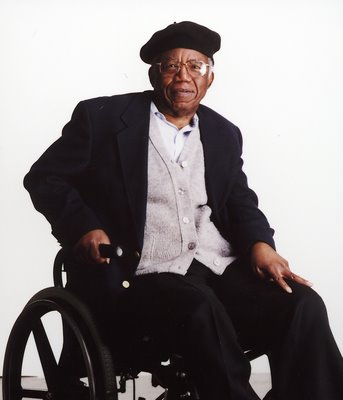|
A BRIEF SUMMARY
"Achebe's Things Fall Apart describes the tragic demise of an Ibo man named Okonkwo. Initially, Okonkwo rises
from humble origins to become a powerful leader in Umuofia, a rural village in south-eastern Nigeria. As Okonkwo climbs the
ladder to success, however, it becomes apparent that his strengths are also his weaknesses: his self-confidence becomes pride,
his manliness develops into authoritarianism, and his physical strength eventually turns into uncontrolled rage. In a broader
sense, Achebe sets this story about Okonkwo at the end of the nineteenth century, when Europeans first began colonizing this
region of Nigeria on a large scale. By so doing, Achebe establishes a parallel between Okonkwo's personal tragedy and colonialism's
tragic destruction of native African cultures."
Things Fall Apart Summary
CULTURE
Achebe depicts the Igbo as a people with great social institutions. Their culture is rich and impressively civilized, with
traditions and laws that place great emphasis on justice and fairness. The people are ruled not by a king or chief but by
a kind of simple democracy, in which all males gather and make decisions by consensus. Ironically, it is the Europeans, who
often boast of bringing democratic institutions to the rest of the world, who try to suppress these clan meetings in Umuofia.
The Igbo also boast a high degree of social mobility. Men are not judged by the wealth of their fathers, and Achebe emphasizes
that high rank is attainable for all freeborn Igbo.
He does not shy from depicting the injustices of Igbo society. No more or less than Victorian England of the same era,
the Igbo are deeply patriarchal. They also have a great fear of twins, who are abandoned immediately after birth to a death
by exposure. Violence is not unknown to them, although warfare on a European scale is something of which they have no comprehension.
The novel attempts to repair some of the damage done by earlier European depictions of Africans. But this recuperation
must necessarily come in the form of memory; by the time Achebe was born, the coming of the white man had already destroyed
many aspects of indigenous culture.
Culture in Things Fall Apart
STUDY GUIDE QUESTIONS
1. Already in Part I of the story, internal rivalries and disagreements have begun to erode the unity and integrity of
the village. What are these internal conflicts? What part does the village leader Okonkwo play in the dissension? How does
Okonkwo jeopardize his own authority within his community?
2.What has happened to the Abame clan? Review "The Igbo People Meet the Europeans: The Era of Informal Empire," pp. xxxix-xliv.
How do Uchendu and Okonkwo account differently for the "foolishness" of the Abame? Whose reaction seems wiser in responding
to new challenges to old ways of living? What does Uchendu mean when he says, "‘There is no story that is not true’"?
(ch. 15, p. 99)
3.
How does the District Commissioner trick the six leaders of Umuofia into jail? What is Okonkwo’s reaction? Why
does Okonkwo kill the messenger? Why does Okonkwo afterwards commit suicide, "an offence against the Earth" (Ch. 25, p. 147)?
Why is Okonkwo isolated in the end? Do you consider Okonkwo a tragic hero?
Review Questions for Things Fall Apart
|
 |
Interview with Chinua Achebe on CNN
The title of this novel is an Allusion to the following poem. Do you think this reference
is an appropriate addition to the meaning in the novel? Why? Why not?
THE SECOND COMING
Turning and turning in the widening gyre
The falcon cannot hear the
falconer;
Things fall apart; the centre cannot hold;
Mere anarchy is loosed upon the world,
The blood-dimmed tide
is loosed, and everywhere
The ceremony of innocence is drowned;
The best lack all conviction, while the worst
Are
full of passionate intensity.
Surely some revelation is at hand;
Surely the Second Coming is at hand.
The Second Coming! Hardly are
those words out
When a vast image out of Spiritus Mundi
Troubles my sight: somewhere in the sands of the desert
A
shape with lion body and the head of a man,
A gaze blank and pitiless as the sun,
Is moving its slow thighs, while all
about it
Reel shadows of the indignant desert birds.
The darkness drops again; but now I know
That twenty centuries
of stony sleep
Were vexed to nightmare by a rocking cradle,
And what rough beast, its hour come at last,
Slouches
toward Bethlehem to be born?
For Criticisms on Things Fall Apart...

|

